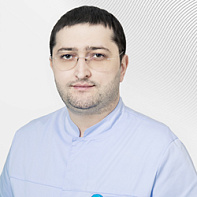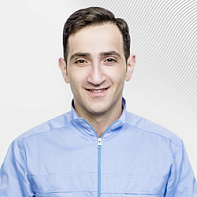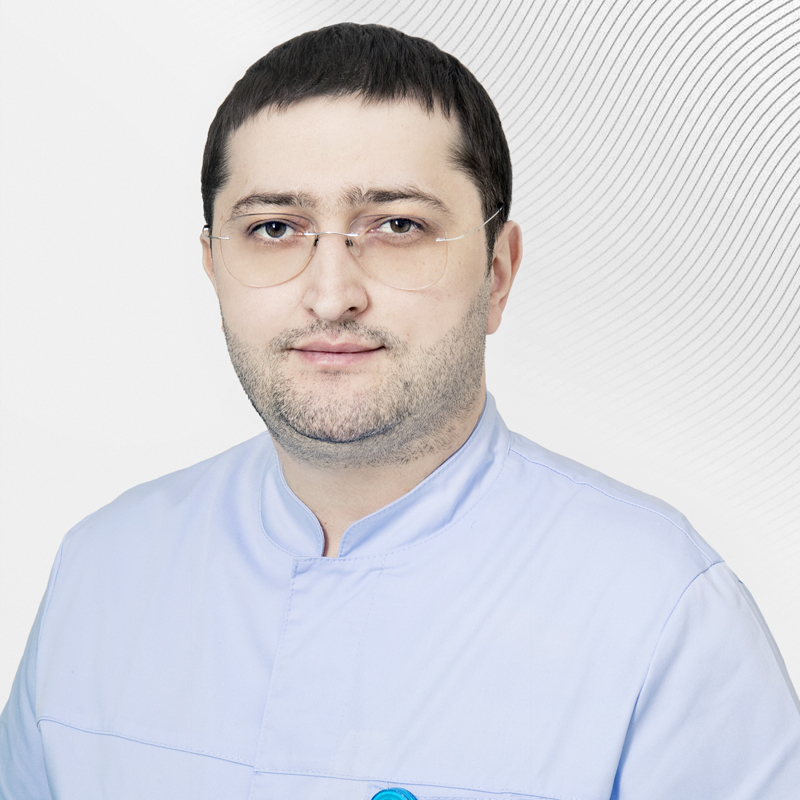Ceramic Veneers
What are ceramic veneers
Ceramic veneers are thin plates made of high–quality ceramics that are applied to the front surface of the teeth. You can install such micro-prostheses on one, several teeth, or on the entire "smile line" (the visible part of the row). Veneers are made from different materials, but ceramics are the most durable, reliable and aesthetic option.
Microprostheses come in different thicknesses:
-
Traditional ones. They have a thickness of about 0.5 mm and require preliminary grinding of the enamel before installation. They provide excellent aesthetic results and durability.
-
Ultrathin (ultra-thin). The thinnest of all options (0.1–0.3 mm thick, about the same as a contact lens). They do not require sanding and allow you to keep the enamel healthy. Ultrariners have high transparency and a natural appearance. The price of ultrathin pads is higher than the standard ones.
In addition, veneers can be made using different technologies and materials. For example, they are made from porcelain, glass ceramics, zirconium, and special ceramics for dental work. The patient can choose any shade of the pads – from ultra-white to as close to the natural color as possible. In addition, you can create micro-prosthetics with a transparent cutting edge and imitation of natural microrelief, as well as combine different shades for the most natural look.
Indications for microprosthetics
The main indication for the installation of veneers is the elimination of aesthetic defects in the dentition. However, the desire to have a beautiful smile is not the only reason for choosing micro–prostheses. The dentist can recommend them in the following cases:
-
Irregular shape or size of teeth. You can make them more aesthetic.
-
Darkening of the enamel. You can cover up dark spots or discoloration that cannot be removed by bleaching.
-
Minor defects. You can hide cracks, chips, or irregularities on the surface of your teeth.
-
Sparsity. If there are noticeable interdental gaps, micro-prostheses will help to eliminate them.
-
Erasability. It is possible to restore the length and shape of teeth that have become shorter or changed under the influence of various processes.
It is important to understand that veneers are not the solution to all dental problems. They cannot replace missing teeth or replace orthodontic treatment.
Contraindications
Not all patients may be candidates for the installation of ceramic veneers. In some cases, the doctor will recommend postponing the manufacture of micro-prostheses or completely abandoning this idea. So, installation is prohibited in the presence of caries, pulpitis, gum diseases. First, you will need to sanitize the oral cavity and cure the existing pathologies.
Contraindications may also include:
-
Bruxism (gnashing of teeth). In this case, the micro-prostheses will wear out too quickly or may be accidentally damaged.
-
Destruction of the walls of teeth.
-
Malocclusion.
-
Missing several teeth.
It is important to remember that each case is different, and the final decision on the possibility of installation is made by the dentist after a thorough examination.
Advantages and disadvantages
Ceramic veneers are an effective solution for improving the aesthetics of a smile. They will hide spots, cracks, irregularities and other defects of the dentition. You can choose natural-looking and colored micro-prostheses, which will make them almost invisible. Or, on the contrary, to prefer an ultra-white "Hollywood" smile – it all depends solely on the wishes of the patient.
Like any medical intervention, prosthetics with ceramic veneers have their pros and cons.
Advantages:
-
Beauty. In most cases, it is impossible to achieve such a magnificent smile using other methods.
-
Durability. With proper care and following the doctor's recommendations, the service life of microprostheses is unlimited.
-
Resistance to pigmentation. Ceramics do not change color under the influence of food or tobacco, unlike natural teeth or composite linings. No more bleaching is required.
-
Protection of enamel from damaging factors: abrasives, acids. Many patients note that hypersensitivity has disappeared.
The disadvantage of ceramic veneers is their cost. The price of high-quality ultrathin pads is expected to be higher than the simpler composite options. However, the cost is offset by an unlimited service life. Replacement of the microprosthesis will be required if it is physically damaged. In other cases, the pads can last 15, 20 or more years. Therefore, the high price is fully justified.
The installation process
The installation of ceramic veneers usually takes place in several stages. The first of these is dental consultation and examination. The doctor evaluates the condition of the oral cavity, determines the presence or absence of contraindications to the installation. Various dental procedures may be recommended to the patient, such as caries treatment or occupational hygiene. Also at this stage, the final price of treatment is determined.
The dentist learns the preferences and wishes of the client about the shape, color and other visual features of future overlays. Then he takes dental casts, which will be used to make veneers. This is necessary in order for the micro-prostheses to fit in shape and size.
The next step is fitting. The dentist may also suggest temporary pads. The patient walks with them for several days to get used to a new kind of smile, evaluate it and make a decision. At this stage, you can make adjustments and make changes to the finished micro-prostheses.
After all the adjustments and design approval, the last stage begins – installation. The pads are fixed with special glue, and after that the patient can immediately return to his usual lifestyle.
Care recommendations
The care of ceramic pads is practically the same as the standard oral care. It is recommended to use a toothpaste without abrasives and an irrigator to clean the interdental spaces.
Although ceramics are resistant to pigments, it is recommended to avoid foods and drinks that can stain teeth, such as coffee, tea, wine, and tobacco. It is also important to avoid traumatic effects, such as not chewing nuts or other hard objects, so as not to damage the pads.
It is important to visit the dentist regularly for professional cleaning and examination (once every 3-6 months). If there is soreness of the gums, gaps between the lining and the enamel, microcracks, you need to urgently consult a doctor.
Remember that veneers are durable, but not permanent. Replacement may be required over time, but proper care will increase the service life.
Aesthetic dentistry at the EMC clinic
At the EMC Dental clinic in Moscow, we are convinced that a beautiful snow–white smile is not only an indicator of health, but also the key to success in life and career. We strive to provide patients with the best services to help them find the perfect smile. Here are the advantages of treatment in our clinic:
-
The specialists are an international team of doctors with experience in the USA and European countries. We are proud to be the first in Russia to offer access to high-quality medicine that meets modern international standards.
-
Our own dental laboratory with high-tech equipment. Here we create customized orthopedic and orthodontic structures.
-
We perform all types of prosthetics and orthodontic correction for patients of any age. We work with even the most difficult cases.
-
We use the latest achievements in the field of dentistry, implantology, orthodontics and surgery through cooperation with leading manufacturers of medical equipment and drugs.
We strictly follow international standards of treatment, ensuring complete safety and high quality of services. Don't put off your dreams of finding the perfect smile. Make an appointment for a consultation and get beautiful teeth in just a few visits to the dentist.
Question-answer
What will happen to veneers in old age?
The service life of ceramic microprostheses is unlimited. They may need to be replaced, but this does not depend on the patient's age, but on the operating characteristics and condition of the oral cavity.
How are veneers made?
Microprostheses are made to order in a dental laboratory, based on the patient's dental prints. This ensures a perfect match in shape and size.
List of sources and literature
- Farias-Neto A, de Medeiros FCD, Vilanova L, Simonetti Chaves M, Freire Batista de Araújo JJ. Tooth preparation for ceramic veneers: when less is more. Int J Esthet Dent. 2019;14(2):156-164. PMID: 31061996.
- Araujo E, Perdigão J. Anterior Veneer Restorations - An Evidence-based Minimal-Intervention Perspective. J Adhes Dent. 2021 Apr 7;23(2):91-110. doi: 10.3290/j.jad.b1079529. PMID: 33825424.
- Kogos Oleg Olegovich, Sokurenko Sergey Viktorovich, Nikeytsev Dmitry Viktorovich Aesthetic rehabilitation of a smile using ceramic veneers // Chief Physician of the South of Russia. 2019. №3 (67).
- Aliev V. MICROPROSTHESES OF THE ANTERIOR GROUP OF TEETH AND THE RATIONALE FOR CHOOSING AN AESTHETIC DESIGN // Norwegian Journal of Development of the International Science. 2022. №95.
Doctors



- He is proficient in modern methods of microprosthetics (veneers, inlays, onlays), prosthetics with removable, partially removable and snap-on dentures, restoration of teeth with metal-ceramic and metal-free crowns
- He graduated from the Faculty of Dentistry of the Stavropol State Medical Academy, and completed his residency in Therapeutic Dentistry at the Medical Academy of Postgraduate Education.
- He is a member of the International College of Cranio-Mandibular Orthopedics.




